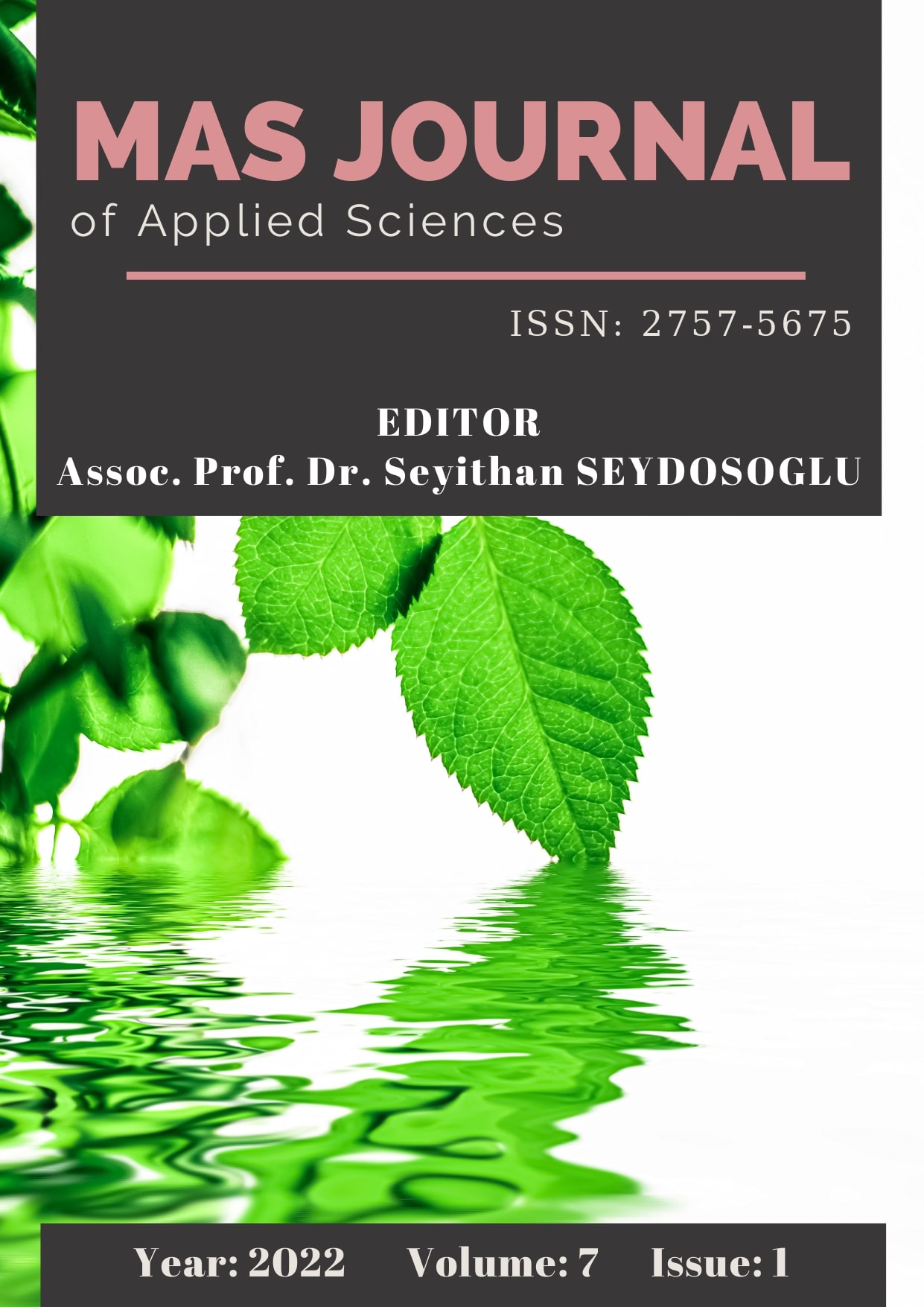Effect of Rhizobacteria and Microalgae Treatments on Development and Physically Parameters of Fenugreek (Trigonella foenum-graecum L.) Grown Under Deficit Water Conditions
DOI:
https://doi.org/10.52520/masjaps.199Anahtar Kelimeler:
Deficit water, rhizobacteria, fenugreek, physiological, growth parametersÖzet
In this study, the effects of deficit water (DW) (normal=control, ½ reduced and 3/4 reduced) andsome beneficial rhizobacteria (Azospirillum lipoferum, Bacillus megaterium) and microalgae (Chlorellasaccharophilia) on some growth and physiological parameters of fenugreek (Trigonella foenum-graecumL.) were investigated. The experiment was carried out in a fully controlled climate cabinet with 3replications in factorial order according to the Random Plots Trial Design. Fenugreek (Trigonella foenumgraecum L.) plant was used as material. The study aims to investigate the effects of different deficit watertreatments (normal=control, ½ reducedand 3/4 reduced) and some rhizobacteria (Control=R0, Azospirillumlipoferum=R1, Bacillus megaterium=R2) and microalgae (Chlorella saccharophilia=R3) on the growthand development of fenugreek. The effects of deficit irrigation practices on stem length, root fresh and dryweight, stem fresh and dry weight, and leaf area were found to be statistically significant. As the deficitirrigation doses increased, all growth parameters decreased. Root length, root age and stem weight werestatistically significantly affected in rhizobacteria and microalgae applications. The highest stem length(19.32 cm) and root wet (1.34 g) and dry (0.18 g) weight were obtained from Bacillus megateriumapplications.
İndir
Yayınlanmış
Nasıl Atıf Yapılır
Sayı
Bölüm
Lisans
Telif Hakkı (c) 2022 Yayımlanan makalenin telif hakları yazarına aittir.

Bu çalışma Creative Commons Attribution-NonCommercial 4.0 International License ile lisanslanmıştır.


